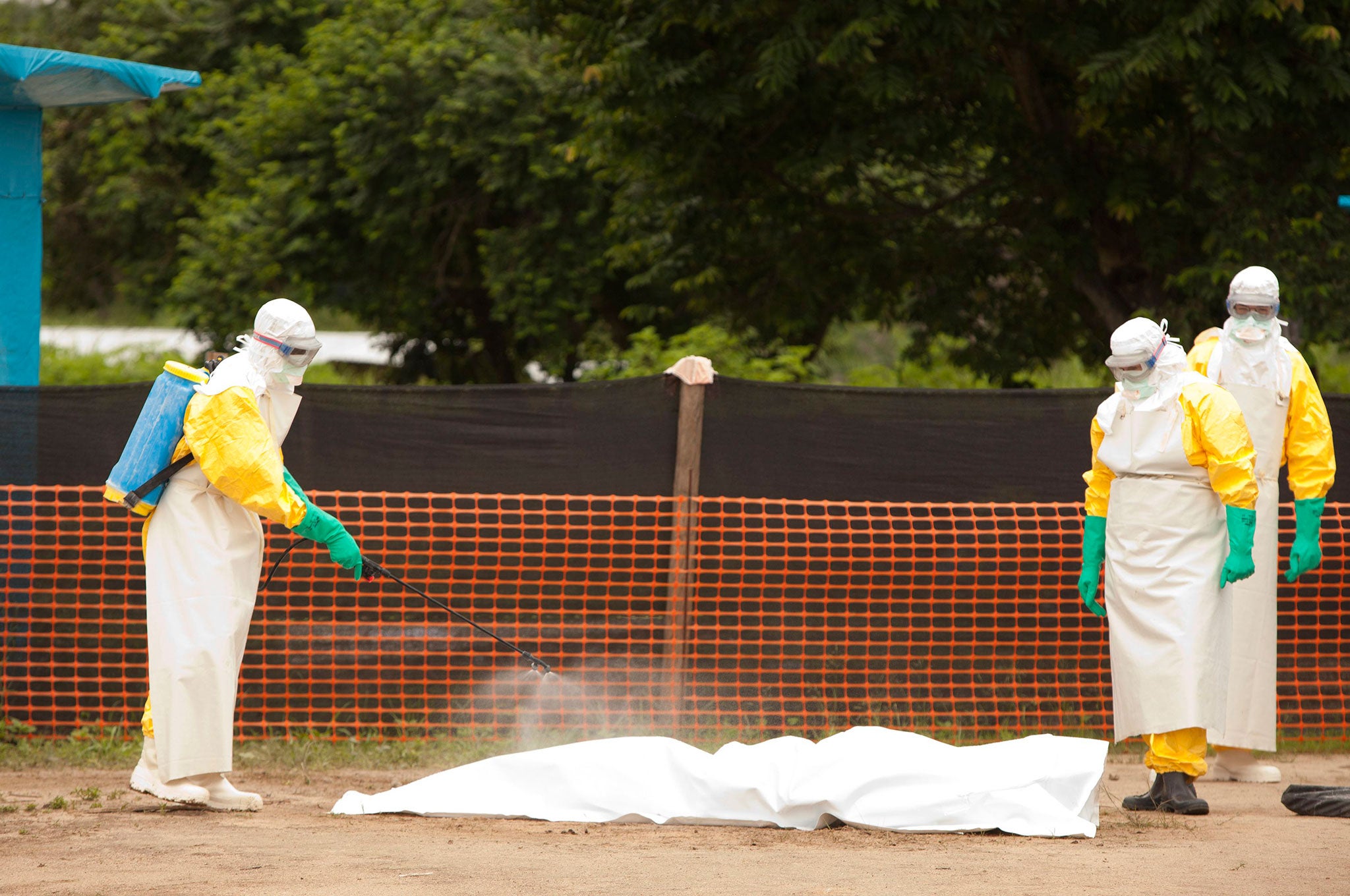Ebola outbreak: Sharp increase in deaths and new cases across West Africa, WHO reports
Latest figures show 57 new deaths - and no signs the deadly virus's spread is slowing down

Your support helps us to tell the story
From reproductive rights to climate change to Big Tech, The Independent is on the ground when the story is developing. Whether it's investigating the financials of Elon Musk's pro-Trump PAC or producing our latest documentary, 'The A Word', which shines a light on the American women fighting for reproductive rights, we know how important it is to parse out the facts from the messaging.
At such a critical moment in US history, we need reporters on the ground. Your donation allows us to keep sending journalists to speak to both sides of the story.
The Independent is trusted by Americans across the entire political spectrum. And unlike many other quality news outlets, we choose not to lock Americans out of our reporting and analysis with paywalls. We believe quality journalism should be available to everyone, paid for by those who can afford it.
Your support makes all the difference.There has been a sharp increase in the number of new cases and deaths reported in the ongoing Ebola crisis in West Africa, according to the UN.
The World Health Organisation's latest figures show that there have been 122 new cases and 57 more deaths, bringing the total number killed by the outbreak up to 729.
Almost half of the new deaths occurred in Liberia, while the latest update also confirmed the death of Liberian diplomat Patrick Sawyer in Nigeria last Friday. The other deaths were split across Guinea and Sierra Leone.
The figures represent a big jump for the four-day period compared to the 12 new deaths in the previous update and the 28 deaths that came in the report on the 24 July.
Ebola cases first emerged in the nation of Guinea back in March, and later spread across the borders to Liberia and Sierra Leone. The outbreak is now the largest recorded in world history, and has infected three African capitals with international airports.
Video: Death toll continues to rise across West Africa
The WHO's figures came as Sierra Leone and neighbouring Liberia both declared states of national emergency, bringing in tough new measures that it is hoped will bring the outbreak under control.
Top health officials have repeatedly criticised the lack of national and international organisation in response to the Ebola outbreak, which has seen fears in Britain and the rest of the world that the virus could be transmitted globally.
President Ernest Bai Koroma of Sierra Leone has now cancelled a planned visit to Washington for the US-Africa summit next week, and said late last night: “I hereby proclaim a State of Public Emergency to enable us take a more robust approach to deal with the Ebola outbreak.”
The measures will be in place initially between 60 and 90 days and “all epicentres of the disease will be quarantined,” President Koroma said.
Following a number of attacks on health workers by local communities – some of whom blame the authorities for causing the disease – security forces will be used to protect NGO officers and health officials, and house-to-house searches will be carried out to track Ebola victims.
While Britain has brought in measures to protect its borders from the threat of an Ebola victim arriving here on a plane, the Foreign Secretary Philip Hammond said the most effective contribution the UK can make is with helping fight the outbreak on the ground in West Africa.
By the end of the week at least five officials from Public Health England will have joined teams of experts from all over the world to help coordinate the systems of infection control, quarantine and contact tracing required to slow and ultimately end the outbreak.
International efforts are being coordinated by Medicins San Frontieres and the World Health Organisation, which said in its last Ebola updated that it continues to “scale up and strengthen all aspects of the response” across Sierra Leone, Liberia and Guinea.
Join our commenting forum
Join thought-provoking conversations, follow other Independent readers and see their replies
Comments